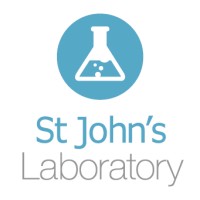Neuregulin-3 / Unconjugated /
Product Details
| Conjugate | Unconjugated | |
|---|---|---|
| Clone | ||
| Target Species | Human, Mouse | |
| Applications | ELISA, WB, IHC | |
| Supplier | St John's Laboratory | |
| Catalog # | Sign in to view product details, citations, and spectra | |
| Size | ||
| Price | ||
| Antigen | ||
| Host | ||
| Isotype |
About Neuregulin-3
This gene is a member of the neuregulin gene family. This gene family encodes ligands for the transmembrane tyrosine kinase receptors ERBB3 and ERBB4 - members of the epidermal growth factor receptor family. Ligand binding activates intracellular signaling cascades and the induction of cellular responses including proliferation, migration, differentiation, and survival or apoptosis. This gene encodes neuregulin 3 (NRG3). NRG3 has been shown to activate the tyrosine phosphorylation of its cognate receptor, ERBB4, and is thought to influence neuroblast proliferation, migration and differentiation by signalling through ERBB4. NRG3 also promotes mammary differentiation during embryogenesis. Linkage studies have implicated this gene as a susceptibility locus for schizophrenia and schizoaffective disorder. Alternative splicing results in multiple transcript variants encoding distinct isoforms. Additional transcript variants have been described but their biological validity has not been verified.[provided by RefSeq, Sep 2009]
This gene is a member of the neuregulin gene family. This gene family encodes ligands for the transmembrane tyrosine kinase receptors ERBB3 and ERBB4 - members of the epidermal growth factor receptor family. Ligand binding activates intracellular signaling cascades and the induction of cellular responses including proliferation, migration, differentiation, and survival or apoptosis. This gene encodes neuregulin 3 (NRG3). NRG3 has been shown to activate the tyrosine phosphorylation of its cognate receptor, ERBB4, and is thought to influence neuroblast proliferation, migration and differentiation by signalling through ERBB4. NRG3 also promotes mammary differentiation during embryogenesis. Linkage studies have implicated this gene as a susceptibility locus for schizophrenia and schizoaffective disorder. Alternative splicing results in multiple transcript variants encoding distinct isoforms. Additional transcript variants have been described but their biological validity has not been verified.[provided by RefSeq, Sep 2009]
Experiment Design Tools
Panel Builders
Looking to design a Microscopy or Flow Cytometry experiment?
Validation References
Reviews & Ratings
| Reviews |
|---|
Looking for more options?
144 Neuregulin-3 antibodies from over 16 suppliers available with over 38 conjugates.





